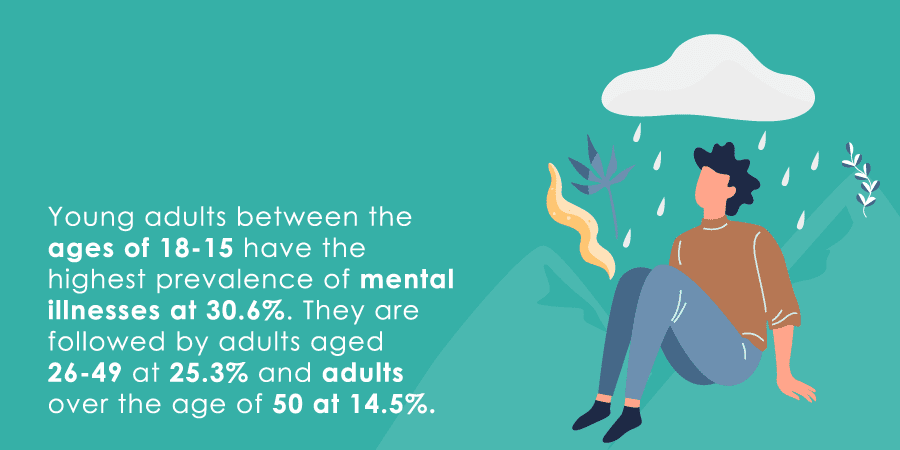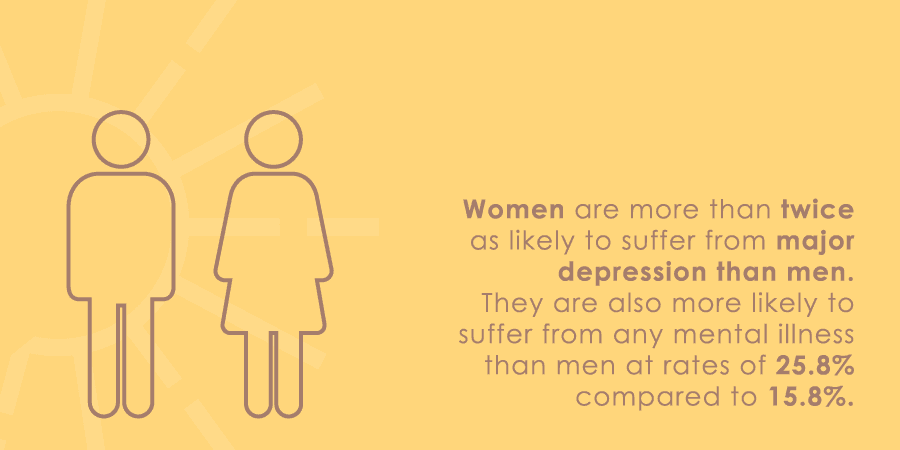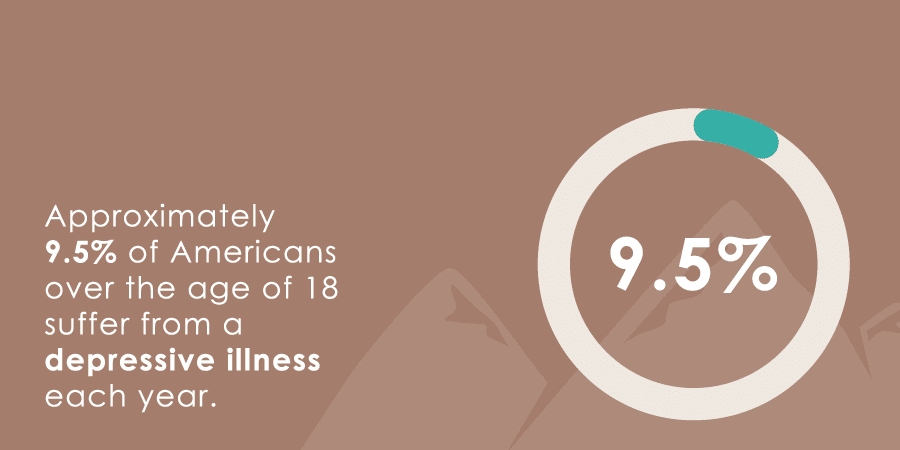Holistic Approach in Mental Health Treatment
A holistic approach to mental health treatment focuses less on treatment plans and more on the person themselves.

What is a Holistic Approach?
This is often due to those treatments focusing on one element of mental health, like medication or therapy, to the exclusion of others. There’s another option: the holistic approach.

Holistic Approach
What Does a Holistic Approach Entail?
A holistic approach is encompassing, comprehensive, and a much better choice for many mental health patients. Read on to learn more about what the holistic approach in mental health treatment is, how it may benefit you or a loved one, and why it’s a better choice compared to overfocused treatment plans.
What Factors Impact Mental Health?
In a nutshell, a holistic approach means taking the entire person into account when forming a treatment plan and practicing treatment strategies. Mental health is affected by several important factors, including:
What Does Health and Wellness Entail?
Why Do Mental Health Professionals Practice a Holistic Approach?
When mental health professionals practice a holistic approach to treating their patients, they can sometimes see much better results than if they focus on one element to the exclusion of all others.
For example, one mental health treatment professional may prescribe an antidepressant medication to a patient they see from time to time. While the antidepressant medication could have some beneficial effects, it may not treat the root cause of the patient’s symptoms, nor will it fully alleviate their mental health problems.
In contrast, a holistic approach takes all of the patient’s symptoms into account. It allows the doctor to analyze a lot of the patient’s information, offer multiple treatment paths and types, and help their patients feel better mentally, physically, and spiritually. A holistic treatment approach is the modern way to treat mental health conditions or to improve patients' mental health for long-lasting, effective results.
Types of Holistic Treatments

Holistic Approach
Patient Education on Lifestyle Changes and Self-Care
Firstly, a mental health care provider may provide you with extensive education and resources on positive lifestyle changes and self-care techniques you can practice at home.
Certain lifestyles or activities can be harmful to mental and physical health. For example, not getting enough sleep by staying out with friends for too long each night can take a toll on your mental and physical health in the long term. For some, practicing this lifestyle consistently can lead to negative side effects, including mental fatigue.
Self-Care Techniques and Recommendations
Self-Care and a Holistic Mental Health Journey
Understanding positive lifestyle changes and how to practice self-care are both important steps to reaching a positive mental health state.
Western Medications
Additionally, many mental healthcare providers will provide holistic treatment by recommending or prescribing different Western medications. This is especially important if you have a diagnosable mental health condition such as anxiety, ADHD, or depression, which are often conditions that cannot be fully and holistically treated without Western medication.
Holistic medicines can help to rebalance hormone levels in the brain or perform other chemical feats that may improve your outlook or help your self-care strategies be more effective. However, the holistic approach operates from the assumption that Western medication is not the end-all-be-all to mental health care treatment – it's merely a piece of the puzzle.
Alternative Therapies
Alternative therapies ranging from yoga to hypnotherapy to meditation and more may provide important benefits to mental health care patients.
Even better, these alternative therapies can be beneficial and effective for patients who have found traditional Western mental health care approaches to be ineffective in the past. Everyone’s mind is different, and different treatments are more or less effective depending on the individual and their past experiences.
Your healthcare provider may try multiple alternative therapy options to see what works best for you. You can then combine these therapy options with self-care practices and Western medication for the best effects.
Alternative Holistic Approach Therapy Options

Holistic Approach
When undergoing a holistic mental health treatment plan, a healthcare provider may recommend different therapy options. Here are a few different options they might recommend.
Yoga Therapy
By focusing on your breathing in your body, you may see benefits to your mental and physical health while alleviating stress at the same time. Yoga therapy can be beneficial either by yourself or in a class with other yoga practitioners.
Mindfulness Meditation
This is a very useful tool when navigating stressful situations or when alleviating stress. Mindfulness meditation can also lead to long-term improvements in happiness or life satisfaction.
Art Therapy
Music Therapy
Equine Therapy
What Does Equine Therapy Entail?
Hypnotherapy
Symptoms of Mental Health Holistic Approach Treatment
Mental health holistic approach treatments are effective and beneficial for most patients because they engage with all important mental health care symptoms. Some of these include:
Choosing a Holistic Approach: Some Tips to Keep in Mind
Although a holistic approach to mental health can be very beneficial, you should choose your healthcare provider or treatment plan very carefully. Keep the below tips in mind to ensure you make the right choice and avoid starting a treatment plan that won’t work for your unique needs.
Choose the Right Service Provider
Always choose the right mental health service provider. Different treatment facilities offer varying alternative therapies, have different focuses for their healthcare professionals, and may have different amenities. Perhaps more than any other factor, your service provider can make a huge difference in how effective your therapeutic experience is and what therapy options are available to you.
Be sure to do a lot of research before signing up for a holistic mental health care treatment plan. Anew Treatment Center could be the right choice for you – be sure to contact us today for questions about what we offer and how we can help.
Treatment Options
As touched on above, be sure to investigate what treatment options are available at a given holistic health care treatment provider. For example, if you believe yoga or mindfulness meditation will be beneficial for your mental health, your treatment provider needs to have someone qualified to guide you through these practices.
Your Feelings
Of course, your personal feelings about a holistic treatment provider matter more than anything else. If a treatment facility or service doesn’t feel right to you, listen to your gut. Your instincts may be able to help you choose the right treatment provider specifically for your needs.
Do Your Homework
Do a lot of research about a treatment provider or mental health service facility before signing yourself in or signing up for a holistic program. The more research you do, the better prepared you’ll be for your program, and the easier it will be to stick with your prescribed treatments.
Appointment Time
Some holistic treatment plans require you to show up or meet with your treatment provider at specific times. If you work a job or have family obligations, some appointment times may not be appropriate for your schedule. Therefore, it pays to make sure that a treatment center’s appointment times work with your other commitments.
Does the Treatment Provider Ask Relevant Questions?
If you sign up for an initial interview or meeting with a holistic mental health care provider, consider whether they ask you any relevant questions. If the treatment provider seems concerned about your needs and is most interested in learning how you feel, they may be a good fit.
In contrast, a treatment provider that pushes products or recommends a specific drug above all else may not have your best interests at heart.
Benefits of Holistic Approach to Mental Health

Holistic Approach
A holistic approach to mental health may provide you with many noticeable or tangible benefits, especially as you stick with a treatment plan that works for months.
What Does a Holistic Approach to Mental Health Accomplish?
Benefits may include:
Holistic Approach in Mental Health Treatment at Anew Treatment Center

Holistic Approach
A holistic approach to mental health treatment is one beneficial approach to help ensure you or your loved ones get the attention and dedication needed in a treatment plan perfectly tailored for you. At Anew Treatment Center, we practice holistic approaches to mental health treatments for each of our patients.
Our holistic therapies rely on combinations of alternative therapeutic practices, Western medications, and much more. We take patient preferences into account and work hard to formulate individualized mental health treatment plans perfectly suited for each patient. We are here to help support our patients through every step of the way, and a holistic approach can be more beneficial than many other techniques. If you or a loved one have been thinking of getting mental health help, consider holistic treatments.
The path to successful mental health treatment starts today. You can contact us for more information or call us to set up a consultation appointment.
Resources
- https://www.ncbi.nlm.nih.gov/pmc/articles/PMC5618172/
- https://onlinedegrees.nku.edu/articles/msn/holistic-approach-to-mental-health.aspx
- https://www.healthline.com/health/food-nutrition/how-to-start-intuitive-eating#your-food-needs
- https://www.healthline.com/health/mental-health/holistic-therapy#who-should-try-it
Learn More About Our Treatment Programs
Our team is ready to talk and determine how we can help. Rest assured your call is confidential. We're here for you.


